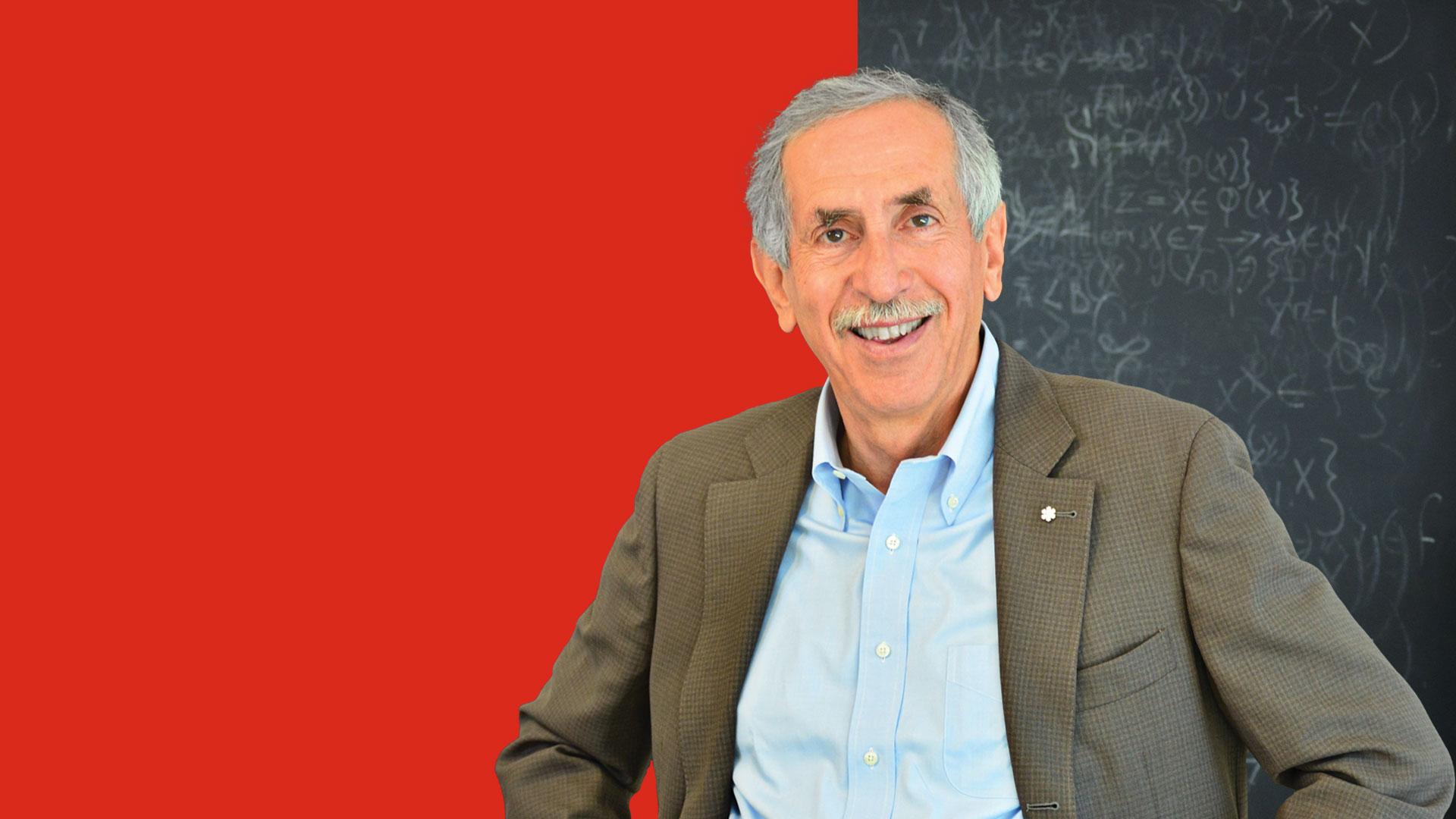By: Liz Do
9 Feb, 2022

Before co-founding Moderna Inc., a biotech company that would take centre stage in COVID-19 vaccine development, Derrick Rossi was a young master’s student in Dr. Alan Bernstein’s lab.
“I remember he was a very bright guy but hadn’t yet settled on a career path,” recalls Bernstein, President & CEO of CIFAR. “He came to me and asked, ‘What should I do next?’ I said, ‘You know, you can either go on to do your PhD, or you could take a year off and decide what you want to do. And if I can help you with whatever you want to do next, I will.’”
“Throughout the history of science, it’s been early-career researchers who have made breakthrough advances and revolutionized thinking about an important problem.”
Dr. Alan Bernstein,President & CEO, CIFAR
Shortly afterwards, with support from Bernstein, Rossi decided to take some time off, hitchhiking through East and Central Africa, before living and working in Paris, France.
“Alan was a great mentor and superb science thinker. I don’t know how many times I saw him ask exactly the most probing and insightful question at a seminar he happened to attend. Truly an impressive scientist and inspiring role model,” says Rossi.
Bernstein’s transformative influence can be found in his leadership at CIFAR, in science and in health research, and in his mentorship of former trainees such as Rossi.
“The next generation are so critical to the future of science,” says Bernstein. “Throughout the history of science, it’s been early-career researchers who have made breakthrough advances and revolutionized thinking about an important problem. Early-career researchers have at least two advantages: they don’t own the past and they don’t have a vested interest in what’s gone before.”
Alexandra Joyner, a world expert in mouse developmental genetics at the Sloan Kettering Cancer Institute in New York, describes Bernstein as a master communicator, who helped develop her into a clearer and more confident communicator in both giving talks and writing papers.
“He also helped me learn how to look at the big picture and watch for exciting new areas to explore,” says Joyner. “He encouraged me to take risks in my science.”
Taking risks in science is at the core of Bernstein’s mentorship philosophy. He believes it is paramount to allow students to be creative and learn by failure.
“[Dr. Bernstein] also helped me learn how to look at the big picture and watch for exciting new areas to explore.”
Alexandra Joyner, Member, Developmental Biology Program, Sloan Kettering Cancer Institute
“I give my students a very long leash to fail,” he says. “We all learn from our mistakes. We all learn from our successes, too. So it’s important for students to have failures and to have successes. It’s our job as mentors to make sure that they don’t choose a problem that is impossible, but one that is doable and important — and then support them in any way we can.”
Robert Rottapel is now a senior investigator and co-leader of the Ovarian Cancer Translational Research Initiative at the Ontario Institute for Cancer Research. As a postdoctoral fellow in Bernstein’s lab, he recalls that the greatest gift he got from Bernstein was the lesson that science is a human activity.
“The success of research is measured by the character and creativity of the people who you work with,” says Rottapel. “Alan created an environment of intense creativity, a demand for excellence and an ambition to make a difference in science. The level of scientific, personal and social interaction within his lab was intense and profound. It is something that I have tried to replicate in my own laboratory.”
“Alan created an environment of intense creativity, a demand for excellence and an ambition to make a difference in science.”
Robert Rottapel, Senior investigator and co-leader, Ovarian Cancer Translational Research Initiative, Ontario Institute for Cancer Research
Both Rottapel and Joyner have now mentored their own generations of leaders, carrying Bernstein’s values, lessons and research expertise forward.
Joyner remembers that soon after graduation, Bernstein told her he worried that her drive as an independent researcher would be too focused on the projects at hand, depriving her of the necessary mentoring time and the dedicated time she would need for her trainees, to help them grow.
“It was a wake-up call that I have tried to keep in mind throughout my 35-plus years running a lab,” says Joyner.
In September 2021, Bernstein announced that he would not be seeking renewal for a third five-year term at CIFAR. The reason is once again a nod to the next generation. CIFAR is set to celebrate its 40-year anniversary, an opportunity to celebrate the past but also to look ahead and achieve greater goals.
“My reason for not seeking a third term is quite straightforward and goes back to what I believe about the importance of the next generation and the future of science and science-based organizations like CIFAR. This is a great organization that plays a critically important and unique role in the global research landscape. I feel very proud of what everyone on the CIFAR team has accomplished over the past nine-and-a-half years. This is the right time for fresh leadership and new perspectives to take CIFAR to the next level,” says Bernstein.
Notifications